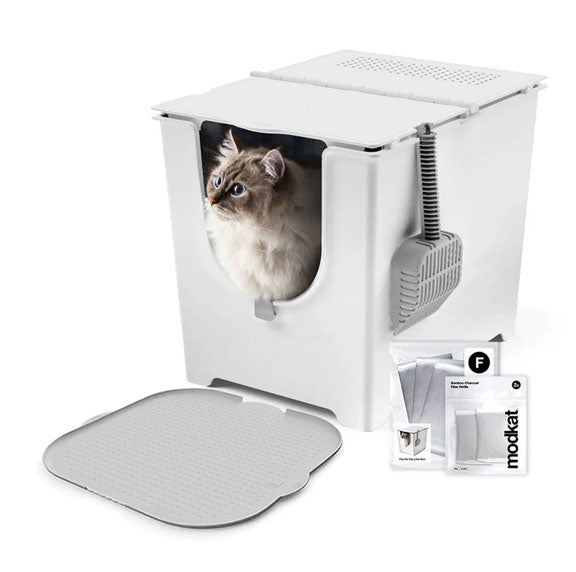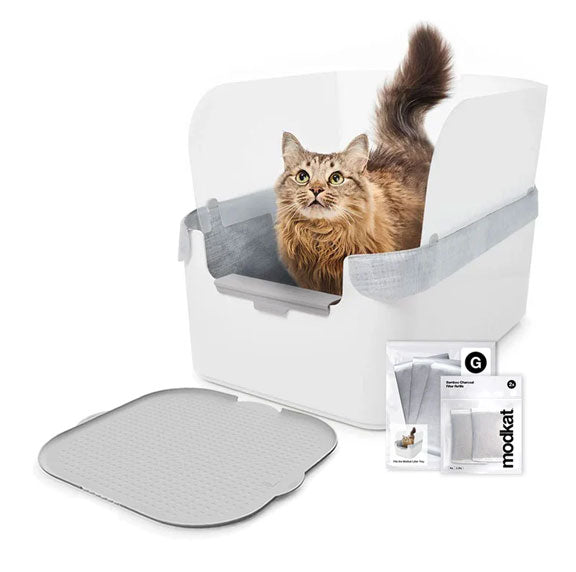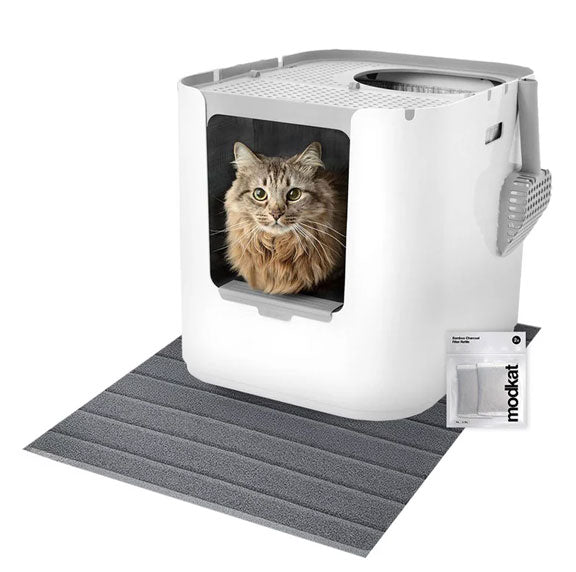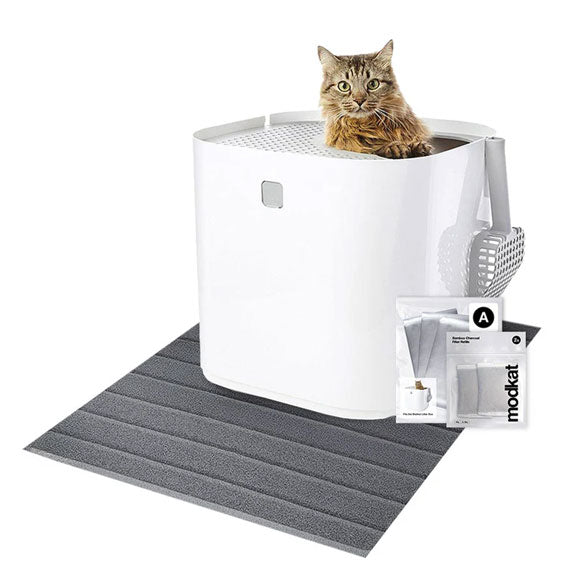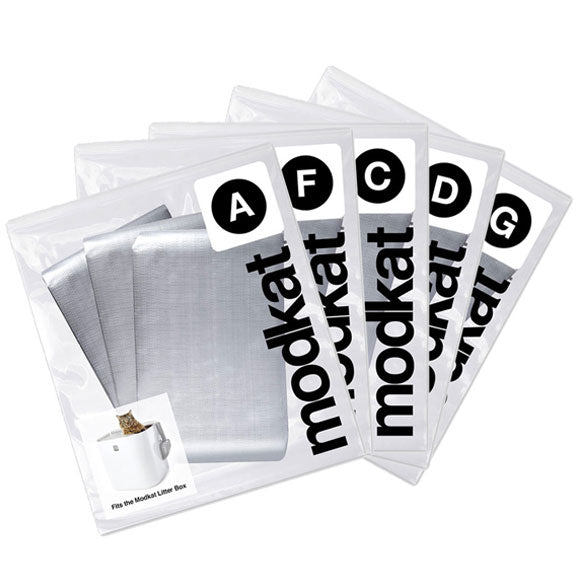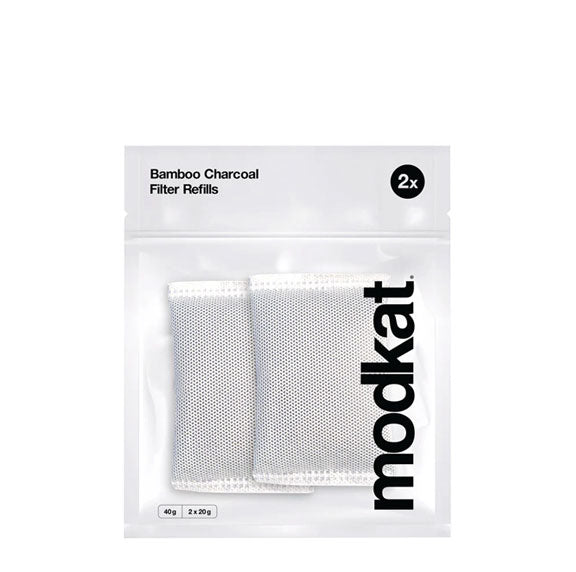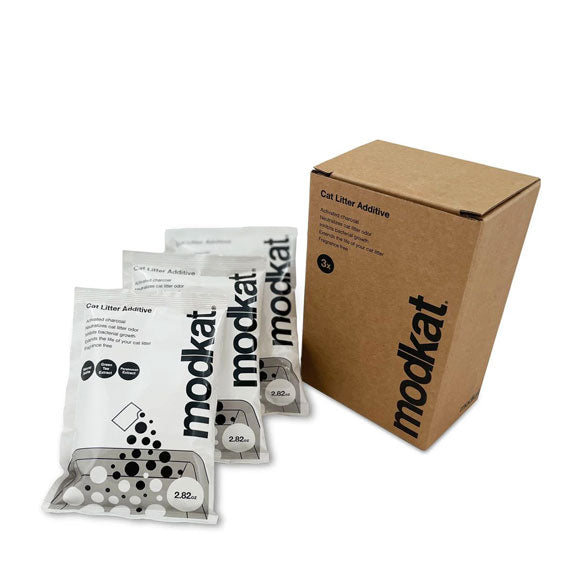20% off sitewide. Discount automatically applied.
20% off sitewide. Discount automatically applied.
Litter Boxes
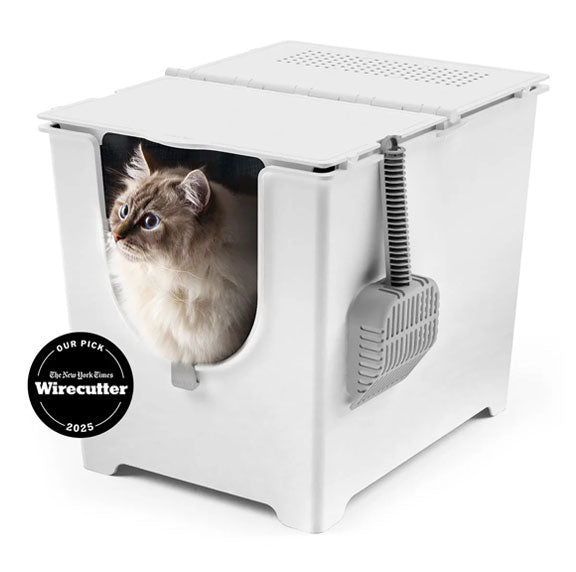
Modkat Flip
Front-Entry Litter Box
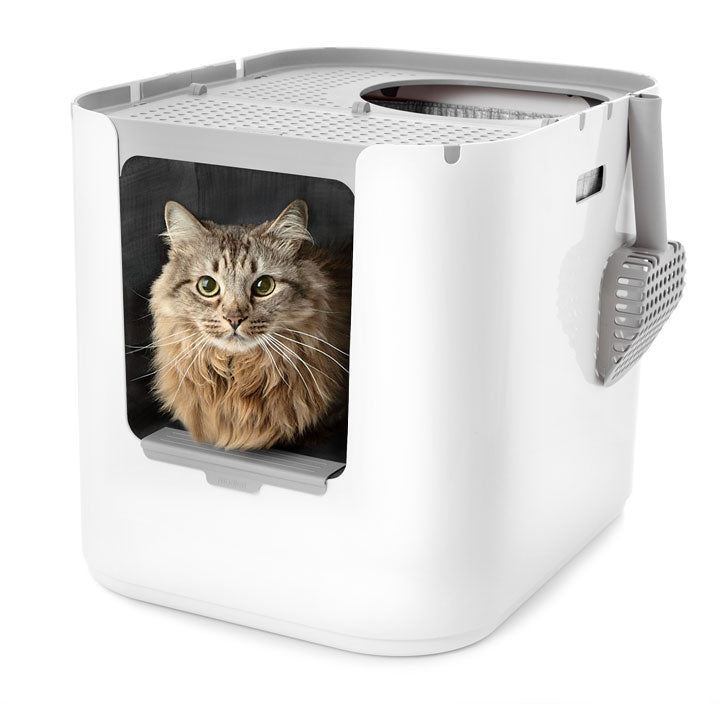
Modkat XL
Front/Top-Entry Litter Box
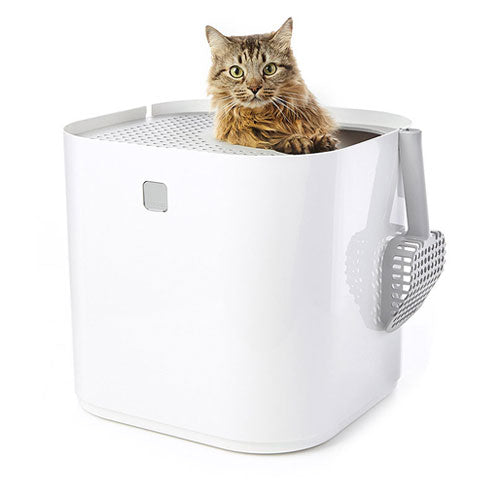
Modkat
Top-Entry Litter Box
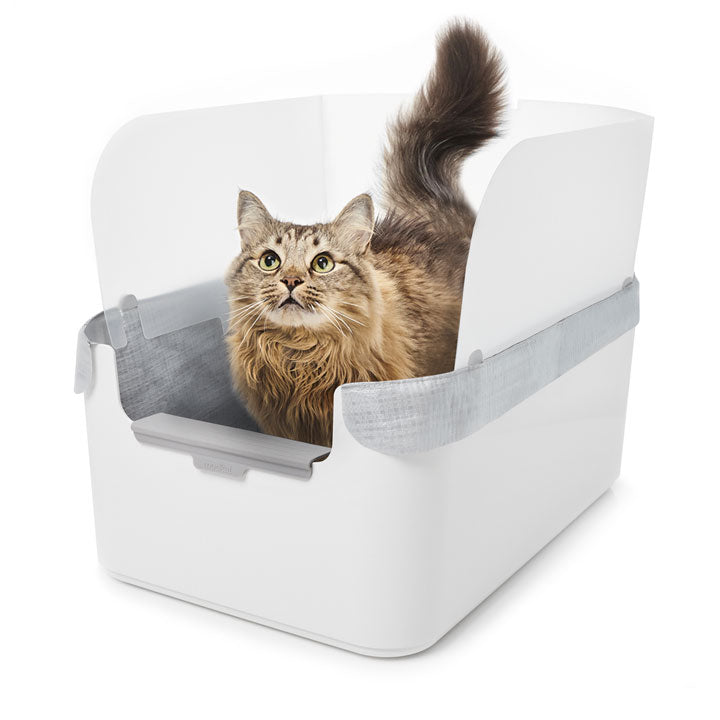
Modkat Tray
Open Litter Box
Bundles
Essentials
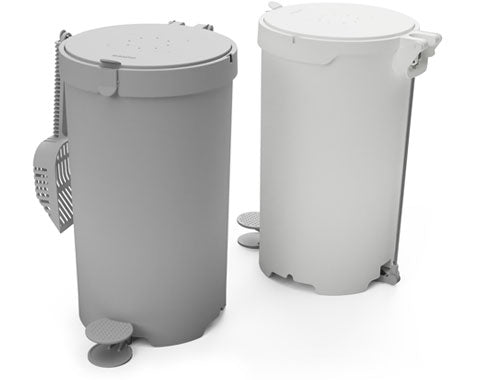
Litter Keeper
Two colors
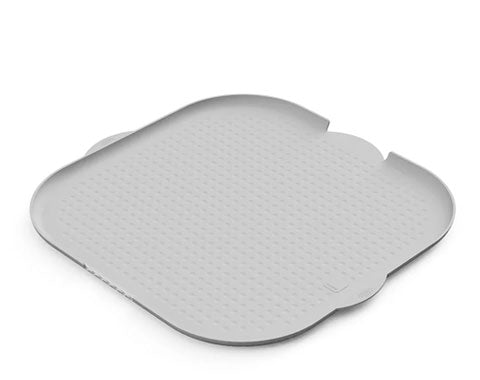
Litter Mats
Multiple styles, colors & sizes
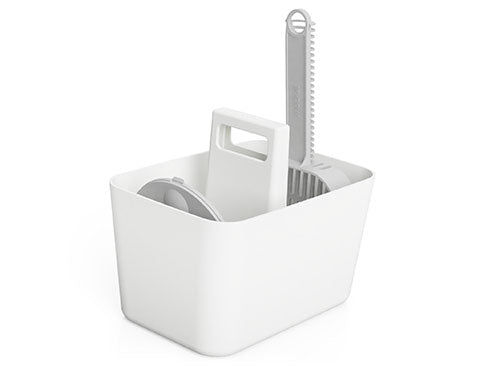
Tidy-Up Kit
Scoop holder & dustpan
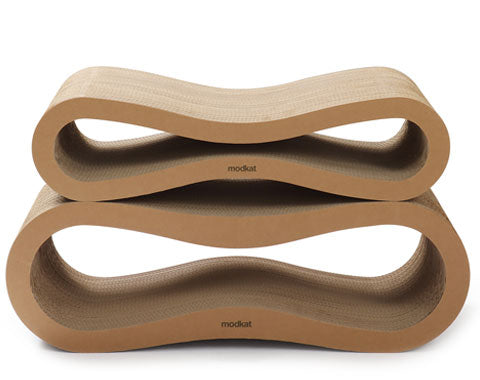
Lounge + Play
Scratchers & toys
Refills
Add description, images, menus and links to your mega menu
A column with no settings can be used as a spacer
Link to your collections, sales and even external links
Add up to five columns
Add description, images, menus and links to your mega menu
A column with no settings can be used as a spacer
Link to your collections, sales and even external links
Add up to five columns
How old is my cat? And why does his age matter?
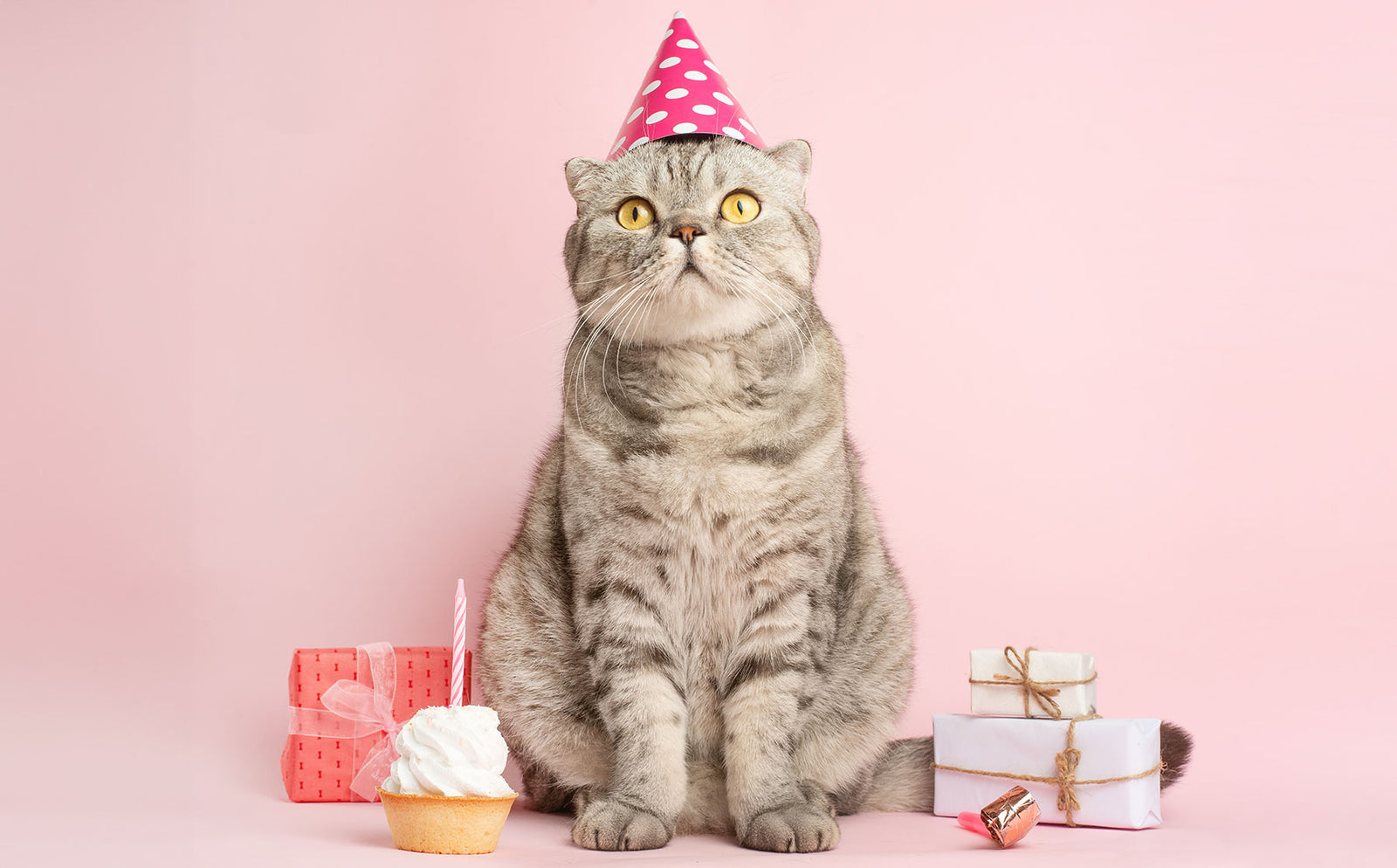
Whether you’ve adopted your feline friend from a shelter or rescued a stray from the streets, determining their age can be a challenge. However, understanding your kitty’s life stage is invaluable. It not only helps you and your vet decide on diet, exercise, and treatment plans but also ensures you’re providing the best possible care for your cat.
Cat-year-to-human-year conversions are more complex than you might have heard. The familiar adage that one human year compares to seven cats doesn’t ring true. Scott, the Seven Hills Animal Hospital administrator, reveals the challenges of answering the age-old question: how old is my cat in human years? He says a cat’s longevity relies on size, breed, sex, and whether they live indoors or out (Indoor cats live about twice as long as their outdoor peers).
Determining a cat’s age is complicated. You can try a tool such as this online cat age-to-human age calculator for converting calendar years to cat years. Like most other feline age calculators, it acts on the hypothesis that the first year of your cat’s life is equal to 15 years of human development. The second year covers roughly nine human years, and each successive year equals four human years. If the cat lives long enough, the ratio drops even lower. Even these more scientific cat-to-human-year calculators, however, don’t consider all the variables. It’s not easy to work out a formulaic answer to the question: How many cat years are in one human year?
We can deal with other questions more definitively though. For instance ...
What’s the average cat’s lifespan?
Most indoor cats live 15-20 years. Burmese, Siamese, Manx, Sphynx, and Ragdolls are some of the longest-lived cats by breed. If you are caring for one of these sweet guys, your relationship could last in the 18-20 year range. If you’re a tabby’s companion, though, don’t lose heart. Most of the world’s oldest cats have been of mixed-breed origin.
Why do cats live longer than dogs?
Science Magazine theorizes that cats’ wild ancestors may avoided predators better than dogs’ forbears did. For sure, small dogs and cats live longer than large dogs. All kinds of pets—cats and dogs alike—are living longer than ever thanks to improved diets and better veterinary care. Still, no pet’s lifespan seems quite long enough.
What criteria does a vet use to estimate my cat’s age?
To determine a cat’s approximate age, a vet first studies the animal’s teeth. In How to Estimate the Age of Your Cat, Dr. Wendy Zimmerman says that kittens under eight weeks of age have fewer baby teeth. That lets vets pinpoint the animals’ date of birth almost exactly. By six months, adult teeth replace baby ones, so from that point on, tartar buildup can be a clue to your cat’s age. With these and other criteria, a vet can estimate your cat’s maturity.
Why does my pet’s age even matter?
As cats grow older, it’s important that we care for them in age-appropriate ways. Nutrition, exercise regimens, and sleep patterns change. Activity levels naturally decrease. And veterinary care becomes more important than ever. If you carry pet insurance, your agency will likely base their fees and coverage in part on your cat’s age.
What is it like to care for an elderly cat?
Cats need love and good care at every age and stage. Senior cats require a human companion’s touch at least as much as their younger, friskier companions. That’s why adopting a senior cat may be among the most rewarding decisions you make. Take Cinnamon, a 17-year old cat in Greece, for instance. Cinnamon’s caregivers passed away, leaving her behind. Her new family treated Cinnamon cruelly, and eventually the elderly cat went to an animal shelter. Cinnamon’s story on YouTube has inspired hundreds of thousands of people to consider taking in a senior cat. If you are one of those, check out our 9 Tips for Living with Older Cats to help keep your senior cat healthy and happy every day.
“It looks nicer than any other hooded or open option we considered.”

Categories
Meow from Brooklyn.
Sign up and get early access to product drops, exclusive offers, and the occasional cat meme.
Similar products related to this blog:
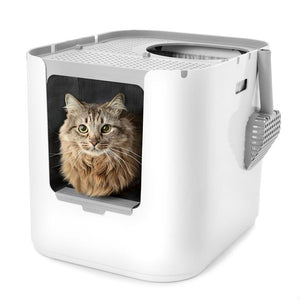
"It looks nicer than any other hooded or open option we considered."

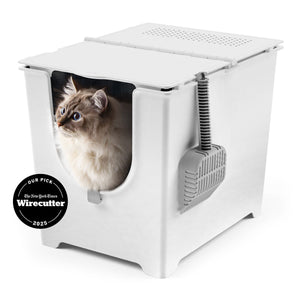
"This litter box keeps everything in, nothing gets out the sides."
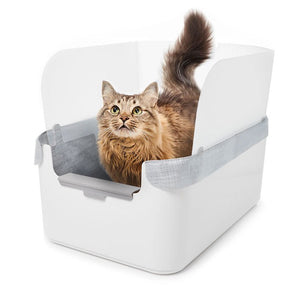
"My beautiful ragdoll cat and I both love the new Modkat Litter tray!"

